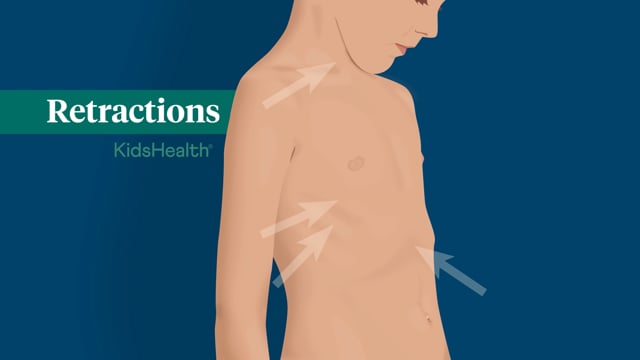- Home
- Humana Medicaid
- Kentucky Medicaid
- Medicaid extras
- Health and wellness
- Parents Home
- Para Padres
- A to Z Dictionary
- Allergy Center
- Asthma
- Cancer
- Diabetes
- Diseases & Conditions
- Doctors & Hospitals
- Emotions & Behavior
- First Aid & Safety
- Flu (Influenza)
- Food Allergies
- General Health
- Growth & Development
- Heart Health & Conditions
- Homework Help Center
- Infections
- Newborn Care
- Nutrition & Fitness
- Play & Learn
- Pregnancy Center
- Preventing Premature Birth
- Q&A
- School & Family Life
- Sports Medicine
- Teens Home
- Para Adolescentes
- Asthma
- Be Your Best Self
- Body & Skin Care
- Cancer
- Diabetes
- Diseases & Conditions
- Drugs & Alcohol
- Flu (Influenza)
- Homework Help
- Infections
- Managing Your Weight
- Medical Care 101
- Mental Health
- Nutrition & Fitness
- Q&A
- Safety & First Aid
- School, Jobs, & Friends
- Sexual Health
- Sports Medicine
- Stress & Coping
When to Go to the ER if Your Child Has Asthma
What's an Asthma Emergency?
If your child has asthma, controlling the condition can help you avoid trips to the emergency room (ER). But it's important to know when going to the ER is the right choice.
Sometimes, kids with asthma need medical care very quickly. If you see any of these signs in your child, go to the doctor right away, go to the ER, or call an ambulance:
- Your child has constant .
- Your child uses medicine for quick relief of symptoms (sometimes called quick-relief, rescue, or fast-acting medicines) repeatedly for severe flare-up symptoms that don't go away after 15–20 minutes or return again quickly.
- Your child has a lasting cough that doesn't respond to inhaled medicine.
- There are changes in your child's color, like bluish or gray lips and fingernails.
- Your child has trouble talking and can't speak in full sentences.
- When your child breathes in, the areas below the ribs, between the ribs, and in the neck visibly pull in (called retractions).

Retractions
How Can ER Visits Be Less Stressful?
Planning can make trips to the ER less stressful for you and your child. Here are some tips to try:
- Know the location of your closest ER. If there's a children's hospital ER nearby, go there and have the address and phone number handy (as a contact on your cellphone, for instance).
- If you have other kids, try to make arrangements with a relative or other caregiver who can take them in an emergency. But don't let the lack of a babysitter delay your trip to the ER. Someone can always come to the hospital later to pick up your other kids.
- Keep an electronic or written copy of your child's asthma action plan with you at all times. If you don’t have one, bring a note with the names and dosages of any medicines your child takes to share with the medical staff at the ER.
- Try to keep a written record of when your child uses their inhaler for quick relief of symptoms.
How Can We Avoid a Trip to the ER?
Well-managed asthma is rarely life-threatening. Taking asthma medicines as prescribed can help prevent severe asthma flare-ups and the need for emergency care. Going to all follow-up visits with the doctor and any specialists (such as a pulmonologist or allergist/immunologist) lets them keep track your child's asthma.
It's important to monitor your child's asthma using the asthma action plan the doctor helps you create. This plan will outline day-to-day treatment, symptoms to watch for, and step-by-step instructions to follow during a flare-up.
Taking asthma seriously and working to manage it can make it less likely that your child will need to go to the ER.
What Else Should I Know?
Many kids with asthma go to the ER because didn't have medicine handy to take for quick relief of symptoms. Your child should have this medicine available at all times, including at school, at sporting events, and while traveling.
- Asthma Flare-Ups
- Asthma (Topic Center)
- Going to the Emergency Room
- What's an Asthma Action Plan?
- When and Where to Get Medical Care

© 1995- The Nemours Foundation. KidsHealth® is a registered trademark of The Nemours Foundation. All rights reserved.
Images sourced by The Nemours Foundation and Getty Images.